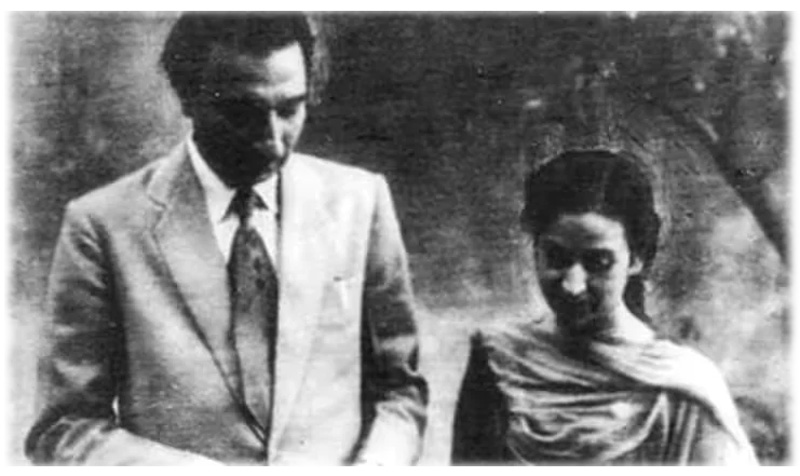 Punjab Literature
Punjab Literature The Punjab of the Romantics: Love and longing in Indian Punjab’s literature
Set against the vibrant kaleidoscope of mustard fields, the palpable rhythm of dhol beats, and the fragrant air that carries the aroma of sumptuous Punjabi cuisine, unfolds the complex, profound and rich tapestry of Punjabi literature.
Each verse, each prose, reverberates with the resonances of love and longing, articulating the myriad hues of human emotions in a way that only the fertile land of five rivers could inspire.
This journey through Punjab’s literary landscape begins with the legendary poet Baba Farid. A mystical Sufi saint of the 12th century, Farid’s poetry was the harbinger of the Punjabi literary tradition, suffused with raw, passionate expressions of love and longing.
His verses, subtle yet poignant, wove a tapestry of spirituality that often took the shape of earthly love. Farid’s beloved was not just a person, but also an embodiment of divine love.
His poetry instilled a sense of both loss and ecstasy, portraying love as a source of pain yet a path to liberation.
Moving forward, the aura of love and longing took a slightly different tone in the literary compositions of Waris Shah, the Shakespeare of Punjabi literature. Shah’s magnum opus, “Heer Ranjha”, is a timeless saga of forbidden love. Heer and Ranjha, the two star-crossed lovers, with their longing for each other, traverse the societal constraints to claim their love.
Their longing is tangible, their love, potent and their struggle, relatable. Here, Shah lays bare the conflict between societal norms and the dictates of the heart, illustrating the pains and pleasures of love with lyrical beauty.
As we travel from the classics to the contemporary period, we find these themes maturing and adapting to the changing times. Modern Punjabi literature carries the fragrance of the fields, the soulful resonance of folk songs, and the depth of love in its bosom, yet reflects the paradox of longing in a rapidly changing world.
Amrita Pritam, the eminent poetess and novelist, painted a different aspect of love and longing in her writings. Through her acclaimed novel “Pinjar” (The Skeleton), Pritam portrayed the heart-wrenching tale of Puro, a Hindu girl abducted during the Partition. The novel traverses through her longing for home and lost love, laying bare the gendered aspects of violence, loss and longing. Pritam’s work is a testament to the resilience of love amidst turmoil and upheaval.
Modern Punjabi poets like Surjit Patar weave the themes of love and longing with intricate social and psychological layers. Patar’s love is not confined within the realm of romance, it extends to encompass his land, his people, their shared history and culture. His longing reflects the nostalgia for a simpler time and a deeper connection with the roots.
The pull of love and the pang of longing have remained constant threads in the ever-evolving fabric of Punjabi literature. This literary tradition, rich and vibrant as the land itself, brings forth the very essence of human emotions, bare and unfiltered. From the mystical verses of Baba Farid to the contemporary strains of Surjit Patar, each verse carries within it the pulse of Punjab, beating with love, throbbing with longing.
The Punjab of the romantics is a realm where love is both a salve and a wound, and longing is both a journey and a destination. It’s a place where love is celebrated in its fullest glory and longing is lamented in its deepest despair. This enduring legacy of love and longing has not just enriched Punjabi literature but also acted as a bridge, connecting hearts, generations, and cultures.
Every verse, every prose, from this enchanting land, is an invitation to plunge into an ocean of emotions, to lose oneself in the resonance of dhol beats, to feel the warmth of love and the chill of longing. So, let’s traverse this landscape together, let’s delve into the Punjab of the romantics and experience the raw, timeless beauty of love and longing.
(Image and text credit: Khalsavox.com)
Support Our Journalism
We cannot do without you.. your contribution supports unbiased journalism
IBNS is not driven by any ism- not wokeism, not racism, not skewed secularism, not hyper right-wing or left liberal ideals, nor by any hardline religious beliefs or hyper nationalism. We want to serve you good old objective news, as they are. We do not judge or preach. We let people decide for themselves. We only try to present factual and well-sourced news.







